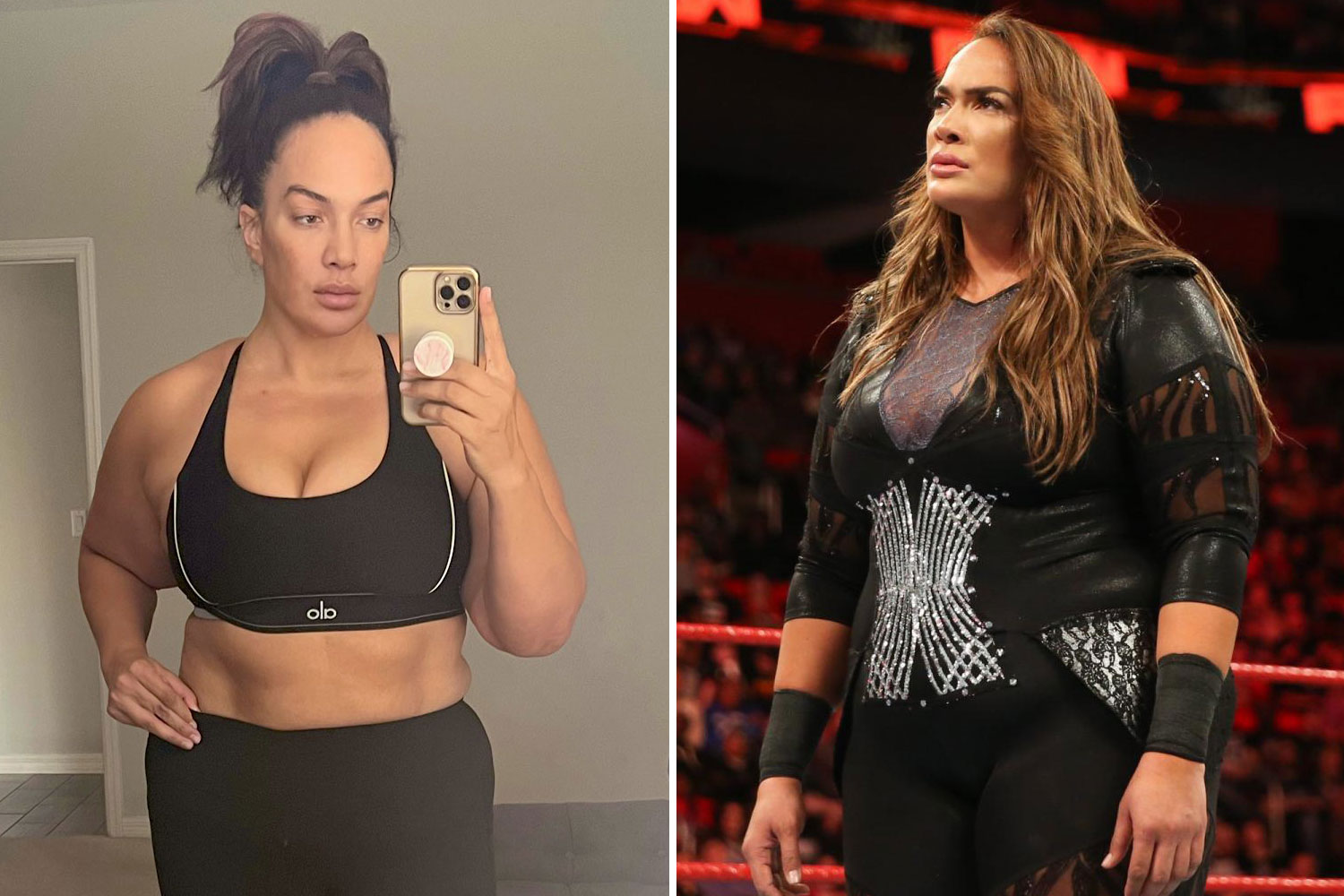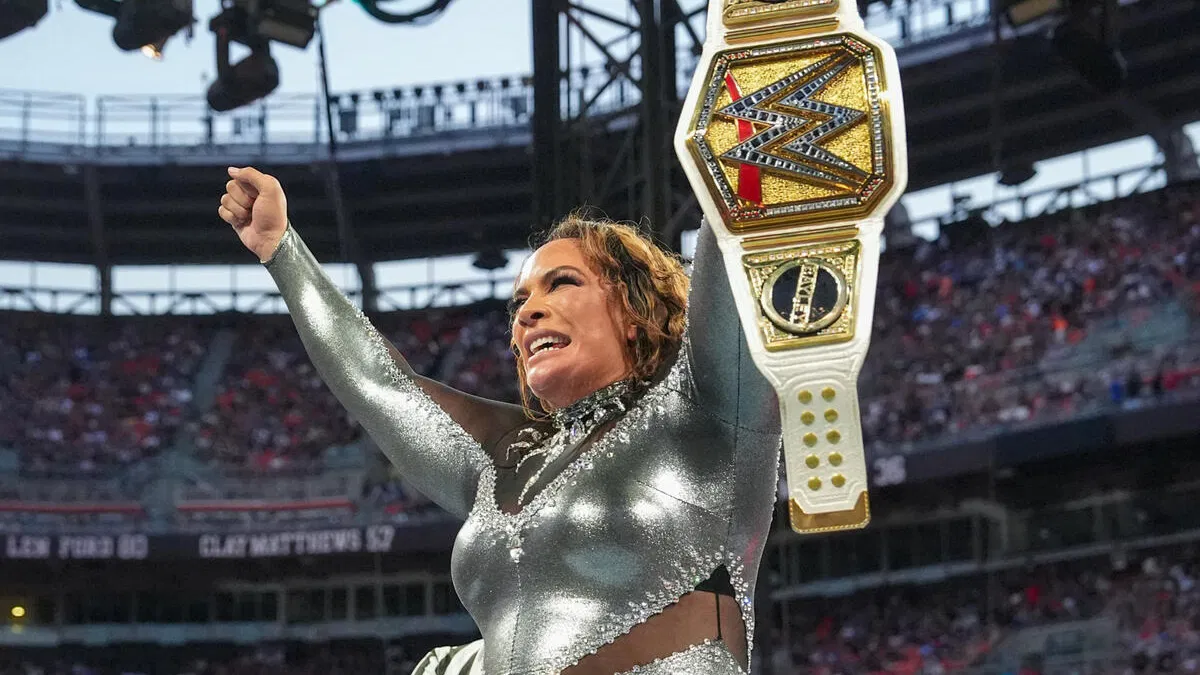Nia Jax. A Double Edged Sword for Women in Wrestling.
The world of professional wrestling has often been a mirror reflecting societal expectations and norms, especially concerning gender roles. Nia Jax, a standout performer in WWE, emerged as a polarizing figure whose presence both challenged and, some argue, reinforced stereotypes. Her journey in WWE raised important questions about representation, diversity, and the portrayal of strength in […]

The world of professional wrestling has often been a mirror reflecting societal expectations and norms, especially concerning gender roles. Nia Jax, a standout performer in WWE, emerged as a polarizing figure whose presence both challenged and, some argue, reinforced stereotypes. Her journey in WWE raised important questions about representation, diversity, and the portrayal of strength in women’s wrestling. Did Nia Jax’s legacy shatter barriers, or did it inadvertently perpetuate outdated narratives?
Breaking Barriers in WWE
When Nia Jax debuted on WWE’s main roster, she was unlike most of her peers. Representing women with larger physiques, she became a trailblazer in an industry historically dominated by smaller, conventionally glamorous women. Her presence alone was a statement against rigid beauty standards in professional wrestling.

Supporters of Nia Jax argue that her success in WWE broke barriers for women of all shapes and sizes. She was unapologetically herself, embodying confidence and power. Her victory in the Raw Women’s Championship and participation in historic matches such as the Royal Rumble showcased her as a formidable athlete, proving that talent and charisma transcend physical appearance.
Empowerment Through Representation
For many fans, Nia Jax was an empowering figure. Her presence validated the idea that strength and beauty come in diverse forms. Young girls and women who had previously felt excluded from mainstream media’s narrow standards found inspiration in Jax’s journey. She often used her platform to promote body positivity, encouraging fans to embrace their uniqueness.
Her feud with Alexa Bliss, which centered on themes of bullying and self-acceptance, struck a chord with audiences. In this storyline, Nia Jax represented resilience and self-worth, emerging as a role model for viewers dealing with similar issues.
Reinforcing Stereotypes in Wrestling
Despite her contributions, critics argue that Nia Jax’s portrayal in WWE leaned too heavily on the “intimidating monster” trope, which has long been used for larger wrestlers, especially women. This characterization often reduced her to a one-dimensional figure, overshadowing her potential for more nuanced storytelling.
Her dominant in-ring style, which drew frequent scrutiny for safety concerns, only fueled negative perceptions. High-profile incidents, such as injuring Becky Lynch in 2018, led some fans to question whether her physicality was portrayed in a way that perpetuated harmful stereotypes about larger women being reckless or overly aggressive.
The Double-Edged Sword of Representation
Representation in media is complex, and Nia Jax’s legacy exemplifies this tension. On one hand, she expanded the idea of what a WWE superstar could look like. On the other hand, her booking and storylines often framed her as an “other,” emphasizing her size as her defining characteristic.
This approach, while spotlighting her uniqueness, also risked isolating her from the broader narrative of women’s wrestling, which has increasingly celebrated technical skill and athleticism. Critics argue that WWE missed an opportunity to showcase Nia Jax in more diverse roles that transcended her physicality.

Fan Perspectives on Nia Jax
The wrestling community remains divided on Nia Jax’s impact. Supporters applaud her for challenging beauty norms and empowering fans, while detractors feel her portrayal reinforced outdated notions of femininity and strength. The criticisms of her in-ring safety further complicated her legacy, leading to debates about whether the backlash was fair or rooted in bias against her size and style.
Some fans believe that Nia Jax was unfairly targeted for incidents that could have happened to any performer, highlighting the unique scrutiny faced by wrestlers who don’t fit traditional molds. Others argue that her role as a pioneer came with the responsibility to elevate the representation of larger women beyond physical dominance.
Nia Jax’s Complex Legacy
The question of whether Nia Jax’s legacy empowered women or reinforced stereotypes doesn’t have a simple answer. Her journey in WWE highlighted both the progress made in diversifying women’s wrestling and the challenges that remain.
For many, she will always be a symbol of empowerment, proving that success is possible regardless of societal expectations. For others, her portrayal serves as a reminder of the work still needed to break free from limiting tropes in wrestling storytelling.
As fans continue to discuss her contributions, one thing is certain: Nia Jax left an indelible mark on WWE’s women’s division, sparking conversations about representation, diversity, and the future of women’s wrestling. Whether viewed as a trailblazer or a controversial figure, her legacy remains a significant chapter in the evolution of professional wrestling.










































